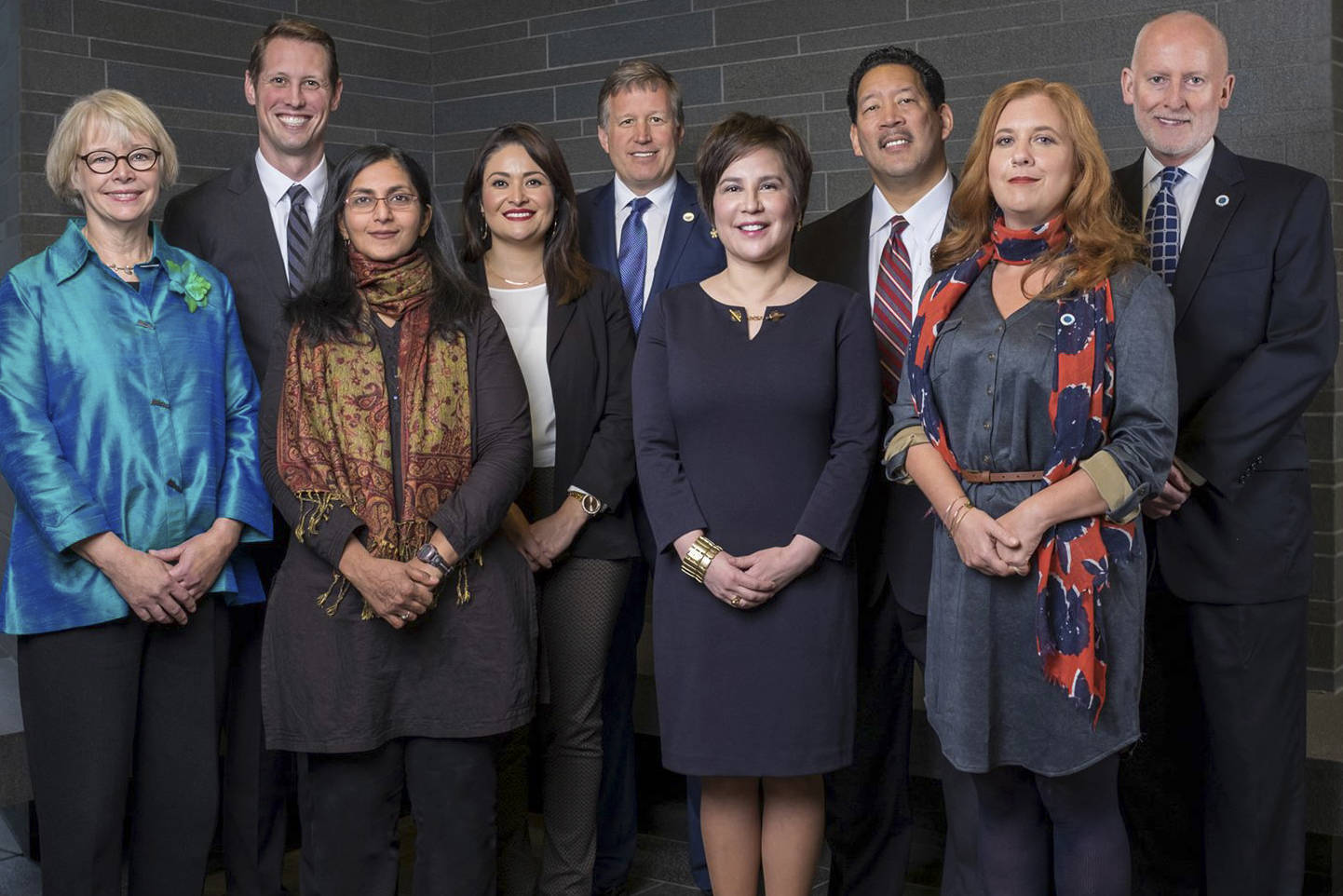Last week, City Council member M. Lorena González told Mayor Ed Murray in a letter that he should either resign, or face Council efforts to force him to, beginning July 24. The letter was a striking document. Until its release, the Council, an independent branch of municipal government that ostensibly holds the executive in check, had remained conveniently silent about the sex-abuse allegations levied against the mayor. The reasoning, in a statement from Council President Bruce Harrell and others, was that the lawsuit pending against Murray, who maintains his innocence, was a matter best handled by the courts.
The letter was also striking in that its author was a former employee of Murray who has continued to work closely with the administration on issues of police reform and immigration. It felt like a serious crack in City Hall’s heretofore stoic facade in facing the allegations.
What moved González to break that silence was The Seattle Times’ publication of documents from 1984 in which an Oregon Child Protective Services investigator concluded (but did not prove) that Murray had sexually abused his foster son. Among other things, the report included an account of the foster son, Jeff Simpson, showing reticence to say anything about Murray because “he is my father.”
Yet González’s laudable willingness to speak up and demand answers about the allegations was met with hemming and hawing in Council chambers. Sally Bagshaw said she wanted to “give the mayor some space to work through this.” Bruce Harrell reasoned that “the mayor is showing up for his job every day … That governs whether he should step down or not.” Tim Burgess implored his colleagues to be “judicious and cautious.” Debora Juarez said she wasn’t raised to “pass judgement on anybody” before launching into metaphysics: “I refuse to allow any kind of darkness in my heart, and I refuse to allow anything that isn’t good, that doesn’t have light, to shape me and the people I work with.”
With such abstractions at play, it’s little wonder that the Monday deadline set by González passed like a warm breeze for the Murray administration.
This is a disservice to the people of Seattle by its elected Council. In their broadest strokes, the statements made by Councilmembers boil down to this: González, backed by Councilmember Kshama Sawant, wants to take this evidence seriously and have a public airing of the community’s concerns in Council chambers. Other Councilmembers have been more reticent, urging caution (that is, inaction).
Councilmembers who believe Murray and think the allegations are false, or agree that the evidence is too old to make a determination one way or the other, or think impeachment so close to the end of his term is redundant, should argue their case in a public hearing, and let their colleagues and the public judge that case accordingly.
Among the stated reasons that charges were not brought against the mayor in 1984 is that Simpson had run away before the investigator finished her report. Since then the statute of limitations for a criminal case against Murray has come and gone. Now that that accuser and three others have come forward, it is reasonable to request that a deliberative body with the power to make a judgment take up the case. With its power over the executive, the Council is that body, and it should consider all the evidence.
Sawant made that last point on Monday, as Councilmembers firmed their irresolution on the issue. “The Council has an independent duty to act on this,” Sawant said. “It’s a question of how our decisions appear, in terms of what courage we’re able to show … and what precedent it sets.”
We must reject the idea that job performance is the only thing that should matter in this case.
As a concession to González, Councilmembers on Monday tentatively agreed to create a special committee that would create a plan for the transition of power at City Hall. However, it should not be seen as a salve to the issue, not least of all because there’s major disagreement over what the committee would even do. To wit, the plan has the support of Murray, who frames it as a way to ease the transition between his administration and whomever comes after him on January 1.
As we’ve written before on this page, presumption of innocence is a vital tenet of our society, and everyone—even the mayor—deserves due process. However, what Murray is receiving from the bulk of the Council is not due process. It’s cowardly deference.
editorial@seattleweekly.com






